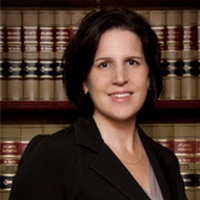Bordentown Bankruptcy & Debt Lawyer, New Jersey, page 3
Sponsored Law Firm
-
 x
x

Click For More Info:
-
Hulse & Wynter, LLC
1624 Jacksonville Road Suite 1 Burlington, NJ 08016» view mapBankruptcy & Debt Law 40 Years of Experience
The attorneys at Hulse & Wynter offer reliable legal solutions to individuals and businesses in the areas of real estate, family, probate, bankruptcy and business law.
800-611-9690
Melissa Yvette Hoffman
Family Law, Bankruptcy, Collection, Landlord-Tenant
Status: In Good Standing Licensed: 21 Years
 Gracy Wynter Burlington, NJ
Gracy Wynter Burlington, NJ AboutHulse & Wynter, LLC
AboutHulse & Wynter, LLC Practice AreasExpertise
Practice AreasExpertise
